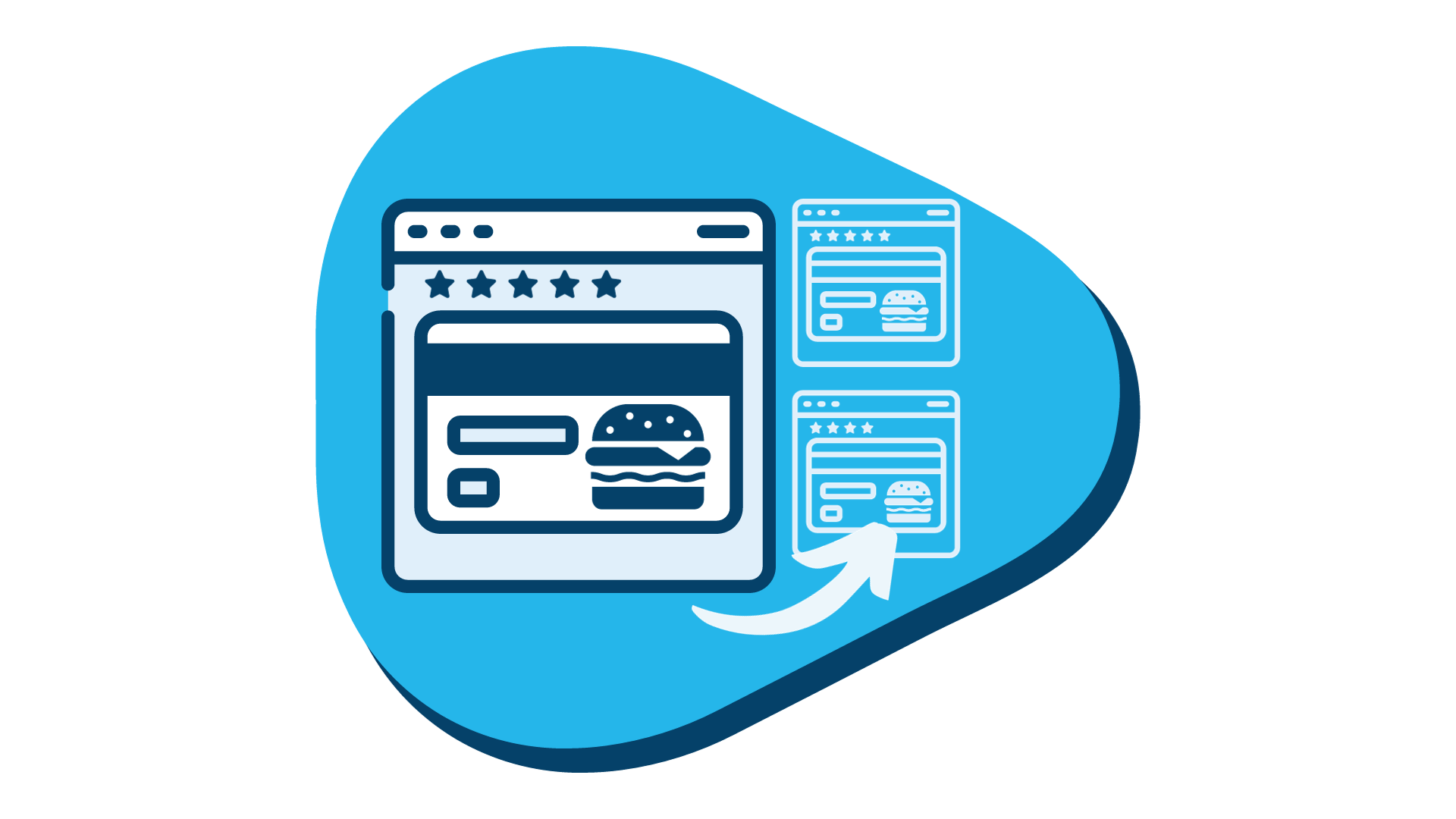Many platforms charge commission fees for showcasing your venue and capturing reservations. But what are the true costs to your business when you pay commission on table bookings, hotel reservations, and event ticket sales?
Most hospitality venues are used to commission fees. Of course, every venue has their own experience with the various solutions available for attracting and managing diners and customers.
Many people might say they’re happy to pay commission fees for the exposure they get online and see it as the cost of being in business. Others say that booking commissions are too expensive and eat away their profits. As a zero-commission restaurant booking system, ResDiary has heard enough customers describe the latter to know that commission fees can have a negative impact on your business overall.
That’s why we’ve shared the top three hidden costs of table booking commission fees in this article. These are common complaints we hear from customers and are often the reason why so many of them end up switching to ResDiary – where they’ll pay a flat fee for managing bookings.
Most notably, we’ll discuss the impact of:
- The uncontrolled cost of table booking commission fees
- Platforms advertising online against your brand name
- Booking systems recommending your competitors to customers

The uncontrolled cost of table booking commission fees
Every venue operator will know just how important it is to keep tight control of their costs if they’re to survive and keep growing. Perhaps this feels even more important now than ever before, as the post-pandemic recovery is still impacting the hospitality sector in the UK. Furthermore, a ResDiary report published in early 2023 suggested that 96% of venue operators expected their operating costs to increase during the year.
Fixed costs cover many things, like rent, council tax, software subscriptions, and salaries for permanent staff (as opposed to shift-workers). It’s best for forecasting and accounting purposes for fixed costs to account for as much of your overall operations as possible. That’s because even if prices do increase as expected, they are unlikely to change on a monthly basis, making them more predictable and easier to forecast profit against.
Commission fees from a restaurant booking system can be problematic because they are variable costs, which means they’re prone to fluctuate based on how busy you are and how commission costs are divided for different booking types. This makes them harder to predict, and often you’ll need to wait for the bill to arrive to fully understand how much you are paying.
Many venues we’ve encountered have started using a booking platform that charges commission, often to get the exposure they need to attract online bookings, but without the full understanding or data they need to accurately predict how much they’d be charged.
This can come as a nasty surprise, especially just after the busy festive season, when so much important profit can be eaten away with costly commission fees. We can’t imagine this is how most venue managers and operators would want to head into January, which is traditionally a very difficult time for the hospitality sector.
ResDiary expert, Jen Medcalf, also says commissionable platforms can leave you unable to plan your service effectively, as often the booking widget is unable to differentiate between adult guests and children.
Consider the fact that the restaurant pays circa £2 per guest on a platform like OpenTable. This means they’d effectively be paying £10 commission for a family with three children who won’t eat or spend much. That could cause a big dent in a venue’s already fine margins.
As we’ve mentioned already, ResDiary is a commission-free booking system, which means you’d pay a flat, regardless of how busy you get – making the rewards for success even more obvious.
How do the booking fees break down for other reservation systems that aren’t commission-free? You can find out here:

Booking platforms advertising online against your brand name
Online marketplaces can certainly serve an importance role in showcasing your venue(s) online and attracting new customers.
But we often hear from venues who are tired of their booking system’s channels showing up above their own brand in online searches. When a customer is looking to book online, we know that the most common behaviour is to click on one of the top three results in a search engine.
This can pose a problem if your venue listing on the booking platform outranks your actual website in the search rankings, and can be especially worrying if they’re also investing in paid adverts too. After all, you're both competing for the same website users.
One could argue it is a unique problem that’s built into most commission-based models, in that it incentivises the booking provider to push traffic to their own website or platform where they can capture and take credit for the booking.
As ResDiary expert, Harry Fox, explains, “Even if operators use the OpenTable widget on their website, diner traffic can still be directed to its marketplace through Google search results and the knowledge panel that appears on the right and hand side.”
He continues, “Operators in most cases can even be beholden to OpenTable out-bidding their brand with targeted pay-per-click marketing." This is the case with other commission-based table booking systems too, including TheFork.
It’s important to remember in those instances that, as well as you are being charged a booking commission fee, your customer is experiencing the platform’s brand as opposed to your own. This takes the customer experience out of your control, and any effort in creating a unique experience on your own website could go to waste.
Even on your website, some systems are still prone to detracting from your unique experience, as ResDiary expert, David Birchenough, explains, “The OpenTable widget shown on a venue’s website is not very customisable. It is usually heavily branded for OpenTable or it will redirect to a new window on an OpenTable page.”
ResDiary’s website widget is fully customisable so you can tailor it to suit your unique brand identity. Plus, we don’t make any money from commission so wouldn’t have any reason to compete against your venue for online traffic!
We also integrate with DesignMyNight, one of the UK’s favourite hospitality discovery site, where up to 3.9 million users search for restaurant recommendations each month. DesignMyNight will promote your listing to users who align with your brand, based on their searches and preferences, such as location and venue type. Any bookings made on your listing are linked automatically to your ResDiary dashboard, so you can manage everything in one place.

Booking systems recommending your competitors to customers
There’s no escaping the fact that online marketplaces and discovery platforms can become crowded. Competition for those heralded top spots can be tough. In fact, they’re often available only to those who are willing to pay premium rates – that's on top of the subscription fees and commission they’re already paying.
When your restaurant booking system is incentivised by commission fees, they’re more inclined to offer users more options to secure a booking, without necessarily worrying about which venue it goes to. That means that commissionable platforms will showcase your competitors to your potential diners and even existing customers.
A classic example of this peril is if you do not have the desired time/day availability that a diner is looking for. With ResDiary, they can simply be offered alternative slots or be added to a standby list. But a commission-based booking won’t want to give up their fee that easily, so will provide alternatives to those diners, ‘taking them away from your venue and straight to one of your competitors’, as Jen explains.
It's not just search results listings on the marketplace where you may find yourself sharing or even fighting for valuable online real estate with your competitors. Those platforms may also run their own email campaigns to their databases (which your venue will help them grow) featuring your competitors. You may be included but will likely need to pay for the privilege once again.
As you can see, it ultimately comes back to control, specifically what is taken out of your control when you rely on a commission-based booking system.
ResDiary doesn’t just put you in full control of your booking widget; we also provide a platform for venues to grow their own customer databases and create targeted marketing campaigns for them. What you do with your list is up to you, we just look after it for you on our servers – after all, it’s your data!

Conclusion
Commission-based booking systems can be a great way to increase your online exposure and attract new audiences. But they come with potential pitfalls that could create a large hole in your profits and even reduce traffic to your website.
We’ve established the three most common complaints we hear about platforms that charge booking commissions are:
- Uncontrolled commission costs
- Advertising against you online
- Promoting your competitors
Don’t forget that ResDiary is a flat-fee commission-free restaurant booking system. Which means your costs are predictable, whatever type of bookings you get. Why not see how much you could save with zero commissions and book a demo with a ResDiary expert using the link below?




